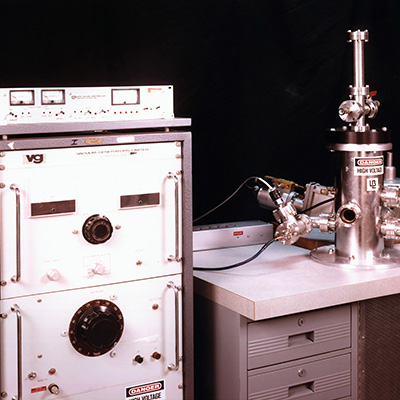Published On: May 06, 2020
The Covid-19 pandemic has thrown an unprecedented challenge in delivering essential services. Along with medicines, assured supply of electricity is must to keep the wheel running in the fight against Covid-19. As we celebrate the frontline soldiers fighting the Covid-19 battle for us, let us not forget the Utility Engineers, Technicians and Managers who are working relentlessly to ensure uptime for distribution of electricity for critical facilities such as hospitals, administration as well as for comfort of general consumers. While the electrical load for factories and commercial space may be significantly down, but the men managing our Utilities now have to be even more vigilant to be able to deliver reliable power.
In this blog, we try to highlight the importance of amazing utility teams, who are pursuing their duty under extremely challenging situations with motivation and a singular goal – to keep delivering reliable power!
INTRODUCTION
Like almost every field, Covid-19 is bound to impact the electrical sector and power distribution function. While the rest of the world is under the lock-down, utilities have been in operation throughout in spite of the constraints imposed by the lock-down. The professionals manning and maintaining the power generation, transmission and distribution infrastructure have been risking their lives, all throughout the crisis to serve the consumers and strengthen hands of administration to fight Covid-19.
But, particularly in the short term, Covid-19 has created a challenging situation and an unprecedented expectation from electrical professionals. For instance, while the Govt. is likely to suggest an extension of credit and waiver of penalties for electricity consumers, the already stressed utility and distribution companies will have no option but to face the situation. While Job losses, and pay cuts are not announced in India, they are already a reality in the western world.
At the consumer end too, the electrical professionals face the challenge of turning around an unplanned facility shutdown to quickly deliver on uninterrupted power as the facilities start-up. Efforts of everyone including Utility Managers, Electrical Managers and those concerned with the electrical and power industry or function will be critical as things start to switch back. Things which remained out of running for a while would require greater degree of careful handling and mindful precautionary steps to avoid any electrical safety hazard.
But the constraints from this transformative experience that the Covid-19 pandemic has imposed on each of us, indicate that there is most likely to be a new normal. In this blog, we take a look at some of the experiences of electrical professionals, macro-level trends in the electrical industry and a look at the hints in post Covid-19 world to imagine the new normal for the electrical professionals.
CALL OF DUTY - DELIVERING ESSENTIAL SERVICE IN THE LOCK-DOWN
Speaking at a Webinar about coping mechanisms that utilities have implemented to ensure that the needs of employees and customers remain served, Mr. Rajesh Bansal, Senior Executive Vice President and Head of Network Operations | BSES Rajdhani Power Ltd (Delhi) mentioned several important factors.
First, that they had planned for many different scenarios, and undertaken multiple simulations, but never had they envisaged a situation like this.
Secondly, the cash flow implications of longer-term financial stability are a key challenge as governments give consumers payment holidays while utilities deal with price fluctuations, and continue to pay in full for the employees, vendors, and for all support services. Yet, he observed that the, understanding and cooperation with consumers has been higher than ever before.
Third, given the exposure to sheer possibility of such an event, now it is more likely for each of us to value reliability over everything else. The focus of RoI is likely to shift to reliability and not cling to the lowest price.
Fourth, and perhaps an important habit that was forced on to everyone managing the electrical and power functions has been the importance of working as a one unified team. Silos between departments had to be broken to continue to operate through the constraints of the lock-down. This has also led to new levels of understanding and a need to work together as the new norm.
The Electrical and Utility Managers are generally preparing themselves for the long-term battle. Several macro-factors are shaping the contours of this battle and the electrical industry needs to come up with the most appropriate response to these factors. Utility now has to have more trust based valued relationship with it’s supply chain to ensure quality and reliability at each step that we take.
COVID-19 LOCK-DOWN WHAT IT MEANS FOR THE ELECTRICAL INDUSTRY IN INDIA?
The almost immediate impact of the Covid-19 lock-down for the electrical industry has been the closure or drastic reduction of commercial and industrial (C&I) power load for almost the whole country. This is probably the first time ever that the power generation and distribution companies are facing such scenario. The implications are much beyond managing the power demand and supply. Starting from DISCOM finances, providing relief to consumers, impact on the solar PV targets for the country to the Chinese factor in India’s power generation, quite a few things are at the stake. We take a detail look:
Impact on Discoms
Traditionally, Discoms have relied upon the differentiated tariff structure for Commercial and Industrial (C&I) to offset the subsidy given to agricultural and residential customers. Now that the demand from C&I is near-zero, the gap in revenues and costs is wider. Some analysts indicate that typically this could lead up to 8% reduction in annual revenues for Discoms. Clearly, this will have a huge impact on the qualitative improvements that the Discoms were expected to bring in their delivery, as power availability was assured. Power Quality regulations and measurements at the State level are likely to take a hit but at our peril for sure. This is at time, when India needs to focus on PQ even more than ever before.
Impact on Electricity Demand
Immediately after the lockdown came into effect, India’s electricity demand fell to 5-month low. The National electricity demand fell to 2.78 billion units on March 25, the first day of the three-week total shutdown. While Electricity system operators must continuously balance demand and supply in real time the most high-profile blackouts in recent times took place during periods of low demand. However, India’s national grid monitored by the five regional load dispatch centres proved its robustness yet again.
Despite the fact that India now has a much higher consumer base, thanks to aggressive reach-out by the Govt. of India schemes and efforts for 100% connectivity under the Deendayal Upadhyaya Gram Jyoti Yojana, or DDUGJY, to reach all villages and Saubhagya to reach all homes in previous years, this has translated to very little addition to the peak demand. This in turn is creating its own challenges in managing the quality of power supplied to industrial and commercials services marked as essential during the lock-down period.
Managing the Chinese factor in India’s electricity
With an estimated 90 giga watt (GW) fossil-fueled capacity in India based on Chinese power generation equipment, access to maintenance expertise and spares is now a newfound risk. As the supply chains stand disrupted, the huge capacities of installed base and those under construction from Chinese Manufacturers are likely to face a hitch in near future. Chinese companies such as Dongfang Electric, Shanghai Electric and Harbin Power are active in the Indian power sector. Additionally, at the consumer end there are a huge number of Chinese Machinery, power measurement and testing equipment that stands to risk from the disruptions in supply chains. Governments on both the sides will have to relook at the policies in order to de-risk for such emergencies.
Rooftop Solar comes to a standstill
Restricted movement means a total standstill for addition of capacities for Rooftop solar. In near future too, the demand is not likely to pick-up significantly, especially for domestic consumers as entry of outside personnel, tools and equipment in houses or factories is likely to be restricted. The Covid-19 is likely to impact the rooftop solar target of 40 GW, by 2023, given the installed capacity of only 37 GW until March 2020
Relief Packages – the one solution to all the problems
The union government in India on Friday (April 21,2020) has been considering a INR 70,000 Cr. financial relief package for the power sector. The relief was announced because the government admitted that electricity consumers will not be able to pay the electricity bill for the next three months which will lead to shortage of cash-flow to the power supply business.
Other measures announced by the Govt. include
- CPSU Generation / Transmission Companies will continue supply/ transmission of electricity even to Discoms which have large outstanding dues to the Generation / Transmission companies.
- During the present emergency, there will be no curtailment of supply to any DISCOM.
- Till June 30 2020, the payment security mechanism to be maintained by the Distribution Companies with the Generating Companies for dispatch of power shall be reduced by fifty percent.
- Directions have been issued to the Central Electricity Regulatory Commission to provide a moratorium of three months to Discoms to make payments to generating companies and transmission.
- Licensees and not to levy penal rates of late payment surcharge. State Governments are being requested to issue similar directions to State Electricity Regulatory Commissions.
Source: https://www.dnaindia.com/india/report-major-relief-measures-approved-for-power-sector-amidst-lockdown-over-covid-19-2818822
While the need for financial relief packages in the short-term are beyond doubt, these must be accompanied with accelerated structural reforms for long-term benefits. For instance, waiver of electricity bills must be accompanied with stringent enforcement of standards and compliance. India’s power sector is at a critical juncture where it has fulfilled the availability and now needs to shift the focus to reliability, safety and efficiency. The Covid-19 crisis can be a temporary set-back to this agenda, however, the structural reforms such as the Power Quality regulations or metering the energy supplied must not be held back while offering the short-term relief to consumers is underway.
But even as the macro-factors face stress and shift, the electrical managers around the world continue to show immense resilience, commitment and courage in their individual capacities to respond to the Covid-19 crisis. In the narrative of economic and macro-level disruptions in electrical industry, let us not miss the individual’s stories of leadership and courage in times of crisis. It is here that we learn the most valuable lessons for the future.
LESSONS FROM WUHAN – ENGINEERS WHO BUILT THE HOSPITAL IN 10 DAYS
Electrical engineers were at the frontline in responding to the Covid-19 Challenges. Here are the lessons in processes and conduct that come from the team building the healthcare facility for Covid-19 patients in just 10 days in Wuhan – China’s Hubei Province in January. The lessons are summarized from shared experiences of Eaton experts, who were a part of the team that delivered this new healthcare facility. The insights offer lessons to follow in responding to emergency while keeping the workers safe, and outcomes that may help in the future.
- Leverage the resources in different departments, office sites, across cities – basically tap into everyone who is connected and available to make a meaningful contribution. This in turn requires an ability to slice and dice work and distribute it to multiple locations and people to again collate back into a unified form to become a useful response. As Electrical professionals, this is the key to responding to emergencies.
- A culture to work from the heart – as the Covid-19 crisis unfolded in Wuhan, a lot of workers were still on a holiday. But the community and customers needed help. The team that is empathetic and ready to go beyond the job responsibilities is key to create a successful response in such crisis.
- Use everything, even if you have not used it before – When the team of engineers had difficulties getting onsite for [uninterrupted power source] commissioning, the team improvised and instructed successful commissioning via video conference.
- Innovative approaches such as social distancing, staggered shifts, increased cleaning and disinfection protocols, along with monitoring the health of employees were put in place in just a matter of hours.
- Modular and prefabricated solutions can fast-track construction.
- Emergency plans should be regularly assessed.
- Inspect and test emergency systems to hold up during moments of crisis. Facility managers should closely inspect their emergency and backup power systems to ensure they can continue to provide the highest levels of treatment should utility power be interrupted.
It is important that at such junctures, we compile and append our learning, increase our sharing to ensure the call-of-duty is fulfilled to the best, no matter what the challenge is.
CONCLUSION
While Covid-19 has created a condition of crisis, it also provides several opportunities which were in the ‘blind-spot’ region for the electrical industry. Who would have imagined that a fully functional hospital facility could be built in less than a month while following the best of electrical standards and codes. It is something that the community routinely struggles to achieve even in normal times. Many electrical managers would have attended virtual meetings and webinars in the lock-down period than they would have done for many years in the past. A welcome change for sure. It also opened the window to rely on the dictum “Back to Basics’ by going to drawing board addressing gaps that was overlooked earlier in rush to complete and perform. This also means the electrical industry and community as a whole will now be even more comfortable adapting the various digital tools starting from remote and continuous power quality monitoring to the importance of digital archives of valuable data pertaining to power. If there is one happy outcome from the outbreak – it could be less paper in power management.
But, if there is one thing that the Covid-19 pandemic highlights as the ultimate factor to focus upon in the facility’s electrical management playbook – its reliability. The reliability of systems, equipment, people and supplies together determine the strength of the response. The new normal – in the post Covid-19 world will demand a playbook that is dynamic and flexible in its quick response to such situations in the future. It will probably break the silos existing in power management and unify the forces towards delivering greater reliability and safety to the consumers. The exposure to common risks shared by the utilities, manufacturers of electrical equipment and consumers can help in developing a new realisation that is based on understanding and co-operation and thus mark a new paradigm for co-operation in the power sector.
While uncertainties around Covid-19 still loom large, two things can be said for sure. There is a new normal for the electrical industry in the post Covid-19 world. And Electrical managers need to be in an ‘upgrade and transform’ mindset to survive and successfully transcend to the new environment in the post Covid-19 world.
We request you to stay safe and follow rules as you answer the call of your duty!
REFERENCES
- Asia-Pacific – Utility Crisis Management: COVID-19 – https://register.gotowebinar.com/register/8476242197216002573
- Navigating through Covid-19 challenges in electricity sector – https://www.cnbctv18.com/energy/navigating-through-covid-19-challenges-in-electricity-sector-5739321.htm
- https://in.news.yahoo.com/two-engineers-among-eight-indians-161700648.html
- Govt. announces relief packages for power sector – https://zeenews.india.com/india/government-announces-relief-package-for-power-sector-amid-lockdown-due-to-coronavirus-covid-19-2272234.html
- Battle against Covid-19 – https://www.business-standard.com/article/economy-policy/little-back-up-to-keep-power-plants-running-in-the-battle-against-covid-19-120040100671_1.html
- Inside Wuhan – Building a Hospital in 10 days – https://www.machinedesign.com/medical-design/article/21129393/inside-wuhan-building-a-hospital-as-covid19-loomed







